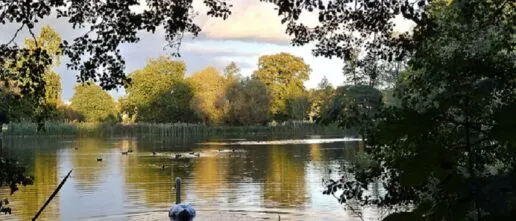Talitha is an interdisciplinary scientist working on how global systems can be shifted toward better outcomes for biodiversity and the environment. The focus is on data-driven, quantitative approaches to support systemic change, with contributions to two major research programmes.
At the Leverhulme Centre for Nature Recovery, the research explores forward-looking tools to track global progress towards conservation goals, prioritise national action, and maximise impact for nature recovery at multiple scales. At the THRIVING Food Futures (Transdisciplinary Health Research to Identify Viable Interventions for Net zero Goals) programme, this involves developing analytical methods to support research into sustainable food system transformations. “
Related Projects

NATURE Impacts: National Assessment Tool for Understanding Relative Environmental Impacts
A forward-looking tool to track global progress, prioritise national action, and maximise impact for nature recovery

Pioneering Nature-Positive Pathways: Organisational Approaches for delivering Nature Recovery
Understanding the methods and actions required by large organisations to deliver effective and equitable biodiversity outcomes in line with achieving global nature recovery goals.
Related Outputs
The “nature-positive” journey for business: A conceptual research agenda to guide contributions to societal biodiversity goals
Biodiversity is rising rapidly on the global agenda, prompting businesses to adopt the “nature-positive” framing, expressing a commitment to combat biodiversity loss and contribute to global nature recovery goals. However, realizing these ambitions requires transformative changes in business operations, which will be challenging given the uncertainties surrounding possible strategies and pathways. A research-driven approach for […]
The Nature Positive Journey for Business: A research agenda to enable private sector contributions to the global biodiversity framework.
As a group of researchers and consultants working at the interface between business and biodiversity, we propose a conceptual model through which private sector contributions to a Nature Positive future could be realised and use it to identify priority research questions.
Navigating uncertainty in LCA-based approaches to biodiversity footprinting
The use of Life cycle assessment (LCA) methods is rapidly expanding as a means of estimating the biodiversity impacts of organisations across complex value chains. However, these methods have limitations and substantial uncertainties, which are rarely communicated in the results of LCAs. Drawing upon the ecological and LCA literature on uncertainty and two worked examples […]
Assessing the implications of a ‘Net Zero’ strategy for biodiversity
Climate change and biodiversity loss are closely linked crises. ‘Net Zero’ and ‘Nature Positive’ have emerged as frameworks for organisations to contribute towards societal climate and biodiversity goals.
Alternative Life Cycle Impact Assessment Methods for Biodiversity Footprinting Could Motivate Different Strategic Priorities: A Case Study for a Dutch Dairy Multinational
To design effective biodiversity strategies, corporations must address uncertainties in biodiversity footprinting methods, and further research is needed to ensure these methodologies drive effective action to combat global biodiversity loss.
